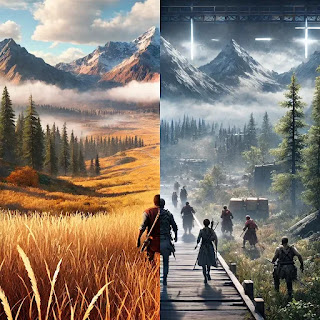"How Storytelling in Games Has Changed Over the Years
Storytelling in video games has evolved massively over the years, turning from simple text-based narratives to deep, cinematic experiences. Back in the early days, games like *Super Mario Bros.* had little to no story—just a simple "rescue the princess" plot. But as technology advanced, storytelling in games became more immersive and complex. Games like *Final Fantasy VII* and *Metal Gear Solid* introduced deep characters, emotional moments, and intricate plots that kept players engaged for hours.
Nowadays, games often feel like interactive movies. Titles like *The Last of Us* and *Red Dead Redemption 2* use strong narratives, character development, and moral choices to create an experience that goes beyond just gameplay. Players are not just controlling a character; they are living a story, making decisions that impact the world around them. One big change is the shift towards player-driven narratives. Open-world games and RPGs, like *The Witcher 3* and *Cyberpunk 2077*, allow players to shape the story based on their choices, making each playthrough unique. This evolution has made gaming one of the most powerful storytelling mediums today, rivaling books and movies in terms of emotional depth and engagement.
Nowadays, games often feel like interactive movies. Titles like *The Last of Us* and *Red Dead Redemption 2* use strong narratives, character development, and moral choices to create an experience that goes beyond just gameplay. Players are not just controlling a character; they are living a story, making decisions that impact the world around them. One big change is the shift towards player-driven narratives. Open-world games and RPGs, like *The Witcher 3* and *Cyberpunk 2077*, allow players to shape the story based on their choices, making each playthrough unique. This evolution has made gaming one of the most powerful storytelling mediums today, rivaling books and movies in terms of emotional depth and engagement.

Комментарии
Отправить комментарий